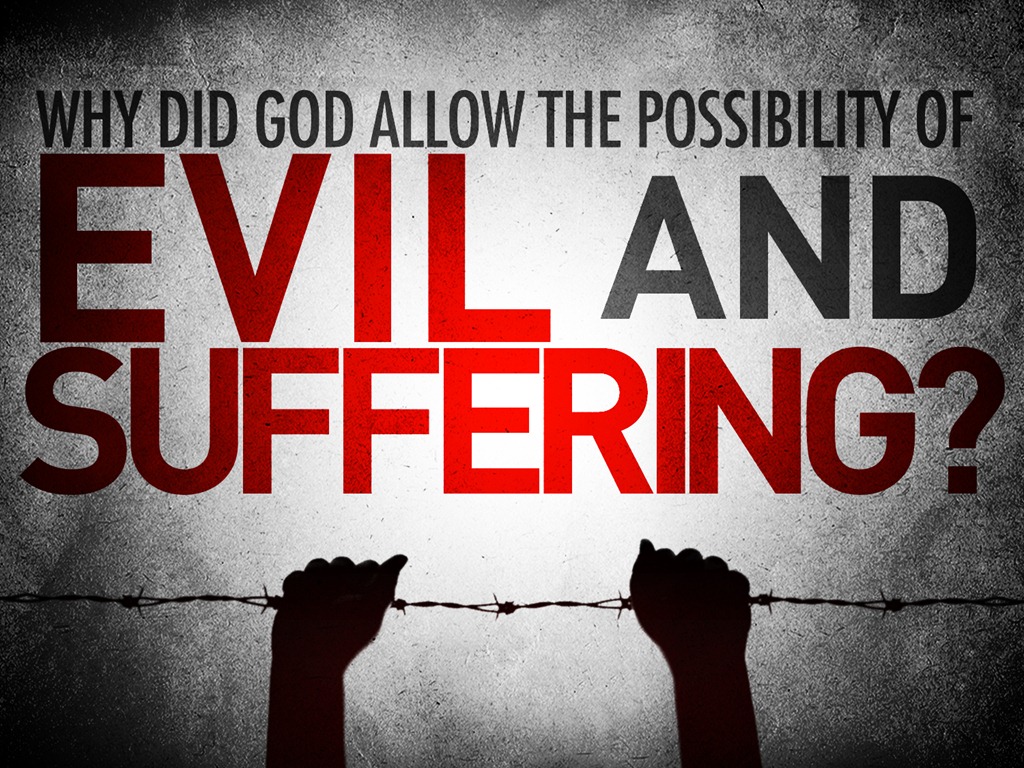
Introduction:
The other morning I was meditating on spiritual resources which enable the Christian to get through any difficult time. As all of us are experiencing the ripple effects of COVID-19, I'm sure we wonder how we will fare? Furthermore, as we emerge out from underneath this time, and face a whole new way of living life amidst what are bound to be sweeping changes, how can the Christian effectively navigate through such choppy waters? Below I offer five truths that God provides for spiritual and emotional strength through this time and, really any situation we may face in the future.
1. Sovereignty of God.
What is God's sovereignty? Divine Sovereignty is that perfection in which God has the unlimited right to be God over all He has created. The sovereignty of God is crisply expressed by Dutch theologian Abraham Kuyper, where he said in effect that there is not one square inch of all creation where Jesus does not say: "mine". King David wrote in Psalm 103:19 perhaps the clearest words about God's sovereignty anywhere in God's Word, the Bible -
"The Lord has established His throne in the heavens, And His sovereignty rules over all. 20 Bless the Lord, you His angels, Mighty in strength, who perform His word, Obeying the voice of His word! 21 Bless the Lord, all you His hosts, you who serve Him, doing His will. 22 Bless the Lord, all you works of His, in all places of His dominion;
Bless the Lord, O my soul!"
Some additional passages which affirm God's ultimate right of dominion over the events of our world are Genesis 50:20; Acts 2:23-24; 14:17; Romans 8:28 and Romans 11:36.
Why is Sovereignty such a strengthening truth? To know that God is on the throne and that there is nothing random or meaningless means there is a purpose to everything - even when we cannot see it in the short-term. I heard author Charles Swindoll once note in a sermon something to this effect:
"Although I may not be able to comprehend all that is in God's Sovereignty, yet because of His Sovereignty I find great comfort and peace".
God's exercise of His Sovereignty in our world is called His "Providence", meaning, He directs the course of all things, and uses both good and evil to accomplish His greatest good. Providence, simply put, is where God's "right-to-reign" becomes "the exercise of His reign in the maintaining of our world". Although God is not the author of evil and suffering, His plan included it. He works His will through the secondary agency of human choices and the secondary instrumentality of the laws of nature, history and events. The Baptist Faith and Message 2000 expresses this point of God's providence:
"God as Father reigns with providential care over His universe, His creatures, and the flow of the stream of human history according to the purposes of His grace. He is all powerful, all knowing, all loving, and all wise."
God chose to create a world that included, in His plans, the Fall of man and the Crucifixion. The inclusion of the crucifixion of Jesus and permission of the Fall of man points us to God's morally sufficient grounds for using both to achieve His most-wise ends. The 1689 Baptist Confession of Faith in Modern English notes about Divine Providence in matters such as COVID-19 (notice the underlined words) -
"All things come to pass unchangeably and certainly in relation to the foreknowledge and decree of God, who is the first cause. Thus, nothing happens to anyone by chance or outside of God’s providence. Yet by the same providence God arranges all things to occur according to the nature of second causes, either necessarily, freely, or in response to other causes."
2. The Savior - Jesus Christ
When Jesus came into our world to live, suffer, die and raise from the dead, He came as the Savior of the world and His church (Acts 20:28; 1 Timothy 2:2; 4:10; 2 Peter 3:9). We read in Acts 4:27-28 a prayer the early Christians expressed that had a strong view of God's Sovereignty and focus on the Savior - Jesus Christ:
"For truly in this city there were gathered together against Your holy servant Jesus, whom You anointed, both Herod and Pontius Pilate, along with the Gentiles and the peoples of Israel, 28 to do whatever Your hand and Your purpose predestined to occur. 29 And now, Lord, take note of their threats, and grant that Your bond-servants may speak Your word with all confidence."
As the early church was undergoing increased pressure, they found spiritual and emotional resources in the mission and majesty of Jesus Christ. The writer in Hebrews 13:8 reminds us of about Jesus as unchanging, with respect to His Divine nature, whenever we consider our rapidly changing world:
"Jesus Christ is the same yesterday, today and forever".
One other quote from the inspired Book of Hebrews about the Savior, Jesus Christ, captures His empathy which He experienced as truly man for us in Hebrews 4:15-16 -
For we do not have a high priest who is unable to sympathize with our weaknesses, but one who in every respect has been tempted as we are, yet without sin. 16 Let us then with confidence draw near to the throne of grace, that we may receive mercy and find grace to help in time of need. - ESV
I love that particular text of scripture, since there is an invitation to come to the Lord Jesus Christ in prayer whenever we're in need of help. The last line of the Baptist Faith and Message 2000 article on "God the Son" reminds us:
"He now dwells in all believers as the living and ever present Lord."
Other New Testament passages such as Hebrews 12:1-3 direct the Christian to focus on Jesus when facing hardship (also consider 1 Peter 2:21-22; 1 John 2:6).
3. The Scriptures.
In addition to God's Sovereignty and the Savior, the third life-sustaining truth for Christians to remember when facing situations such as COVID-19 or other times is the Word of God - i.e. "the Scriptures". The term "scripture" derives from the Latin "scriptura" and means "that which is written". The Bible is God's Divinely written, inspired, inerrant words as originally given to the prophets and apostles. Psalm 119:105 reminds us in these dark times:
"Your word is a lamp to my feet and a light to my path."
Romans 15:4 gives us this life-practical reminder of why we need the Bible in times such as these:
"For whatever was written in earlier times was written for our instruction, so that through perseverance and the encouragement of the Scriptures we might have hope."
Readers can also turn to the following Biblical passages about the necessity and sufficiency of scripture in difficult times (Psalm 19:7-14; 2 Timothy 3:15-17; 2 Peter 1:19-21).
4. The Spirit of God.
For the Christian, having God's presence directly active in their life ought to give great comfort in a time such as this, which is why Jesus promised the sending of the Holy Spirit upon His ascension into Heaven (see John 14:16-17; 14:26; 15:26-27; 16:7-11).
The Holy Spirit is the third Person of the Trinity, meaning, He brings to us the direct presence and power of God as God. Put another way, I sometimes refer to the Holy Spirit as the "Ambassador of the Trinity", since it is He Who makes available to the Christian access to the Lord Jesus Christ and the Heavenly Father (see Romans 8:14-16; Galatians 4:6; Colossians 1:27; Hebrews 4:15-16). The presence of the Holy Spirit in the Christian means that God is literally with every believer, and that there is no chance of having to face any crisis alone apart from God (see 1 Corinthians 3:16; 6:19-20).
5. Certainty of God's promises.
I've read over the years that various authors estimate some 8,000 promises from God to the Christian. What promises can we turn to when facing difficult times? Let me mention a few examples. Whenever you are trying to discern God's will for future employment, your family or your current situation, Proverbs 3:5-6 gives this counsel:
Trust in the Lord with all your heart
And do not lean on your own understanding. 6 In all your ways acknowledge Him, And He will make your paths straight.
What about knowing how to pray whenever you feel overwhelmed? How can you cope with overwhelming burdens such as bills and health? The Apostle Paul gives us this prescriptive promise in Philippians 4:6-7 -
Be anxious for nothing, but in everything by prayer and supplication with thanksgiving let your requests be made known to God. 7 And the peace of God, which surpasses all comprehension, will guard your hearts and your minds in Christ Jesus.
Then of course the impulse we all feel to get out of our homes and go "do something". For others, the current "holding-pattern" is nerve-racking, especially whenever one feels the urgency to get back to work or somehow try to transcend a situation in which they have no control. The promise we find in Isaiah 40:30-31 is timely -
"Even youths shall faint and be weary,
and young men shall fall exhausted;
31 but they who wait for the Lord shall renew their strength; they shall mount up with wings like eagles; they shall run and not be weary; they shall walk and not faint."
Closing thoughts:
We've considered five truths to get us through any situation: God's Sovereignty; the Savior - Jesus Christ; The Scriptures; The Spirit of God and the certainty of God's promises. I've found in over thirty years of Christian living that these five spiritual resources enable endurance through any and every situation. May the Lord strengthen you dear reader as you look to Him.






